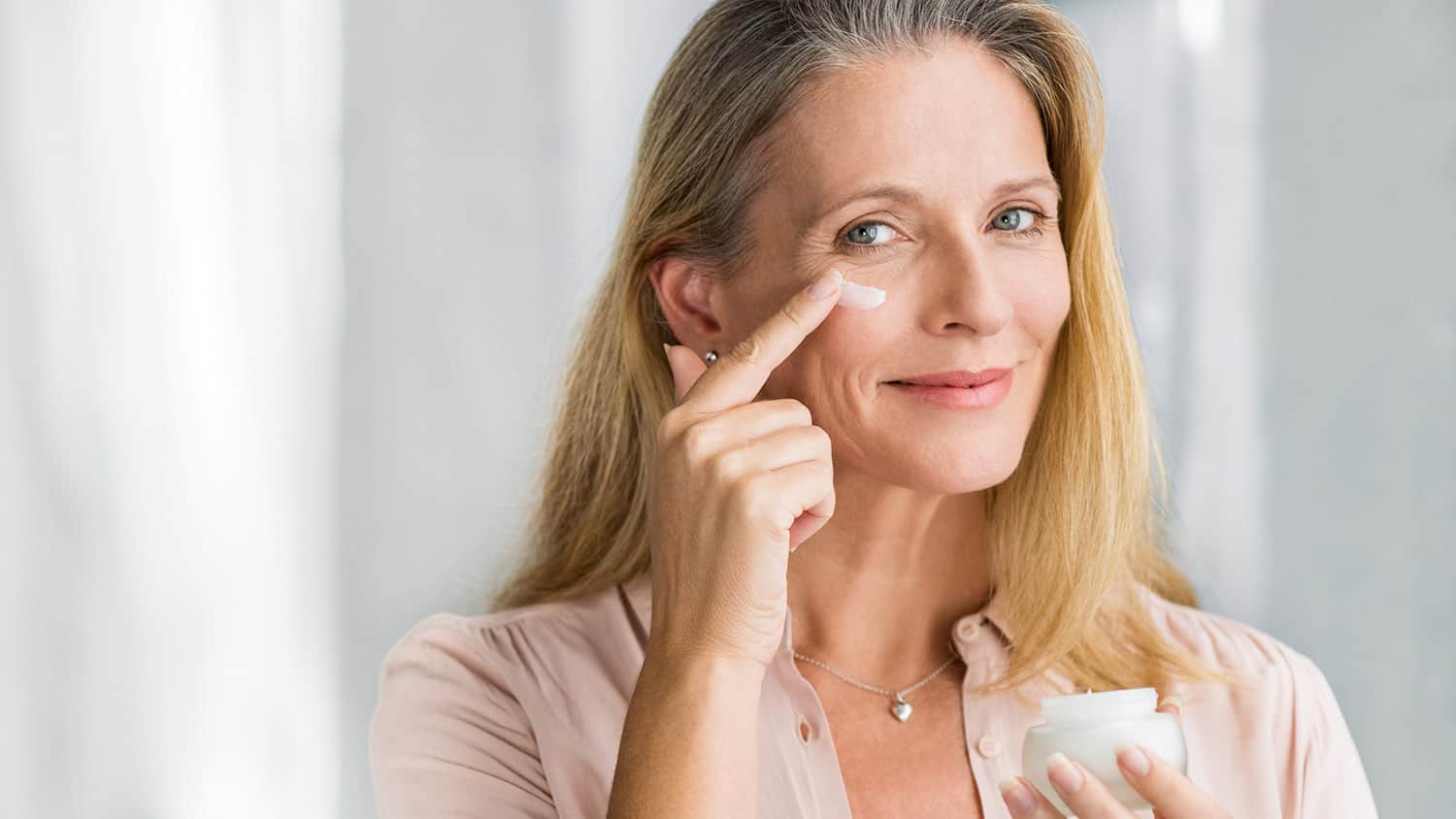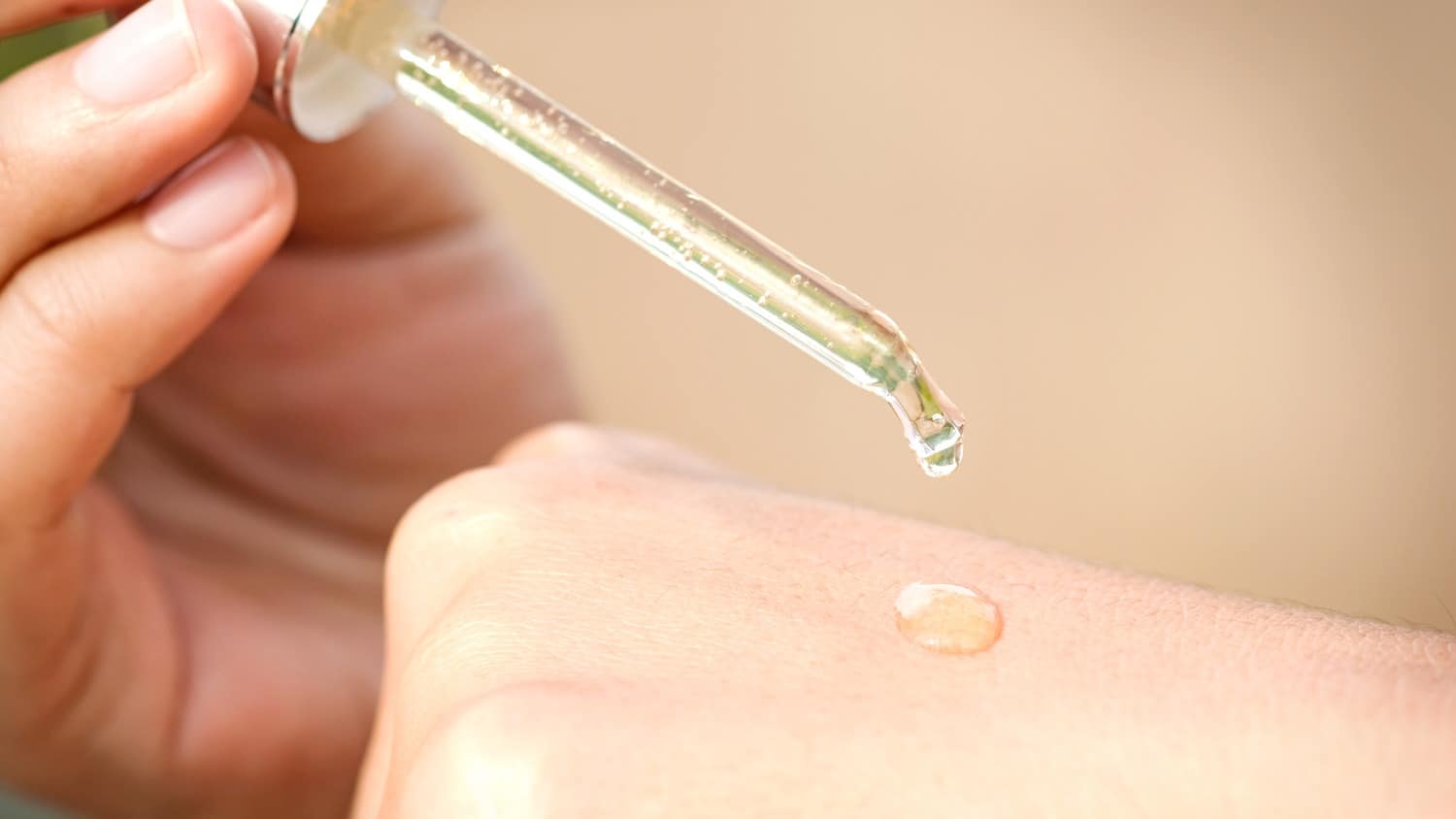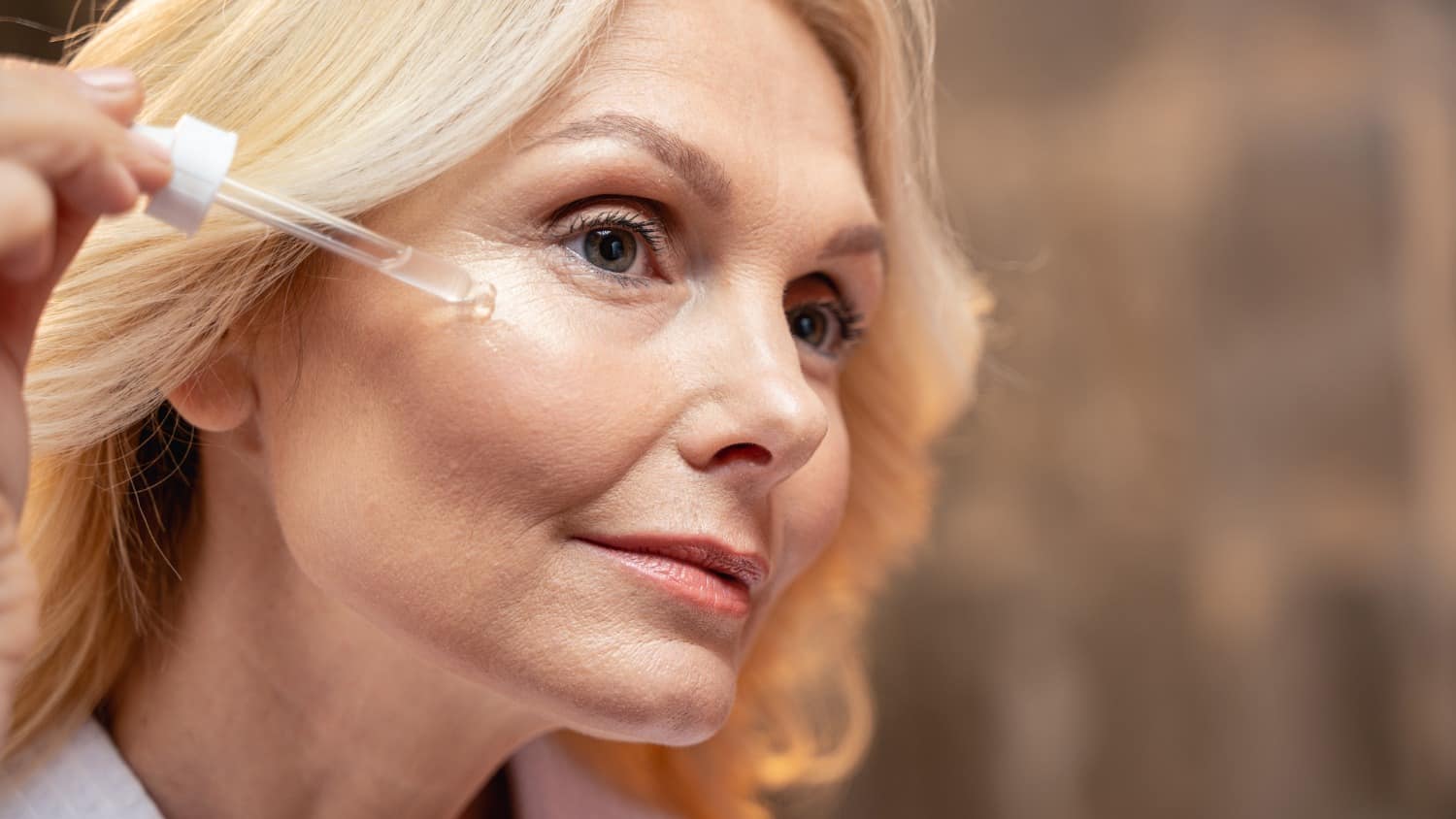
Face It! What You Put on Your Face Matters, Especially After 55
Hyaluronic Acid, Glycolic Acid, Retinols, Biotin, Ceramides, CoQ10, Jojoba Oil, Resveratrol… How is an aging woman to choose the best and safest lotions and potions to apply for a youthful appearance? Here are some dos and don’ts when it comes to retaining glowing, smooth skin as you age.
The Most Effective Skin Care Product
Retinol is the Vitamin A derivative that is the most powerful anti-aging compound used today. Its ability to boost collagen production makes it an ingredient that should be part of your daily skin care regimen.
According to Dr. Robert Arolik, clinical assistant professor of dermatology at the NYU School of Medicine, “Retinoids win by a long shot over any other skin care products in terms of skin rejuvenation.”
Retinols are weaker over-the-counter versions of retinoids, and they are available in many skin care lines. They help maintain a look of youthfulness by plumping the skin through increased collagen production. This helps reduce the fine lines and wrinkles associated with aging.
When searching for a retinol product, look for one that extracts the compound from plants, such as rosehips, which are rich in Vitamin A. A good example is the TaTa Harper brand.
Plant Stem Cells
Don’t confuse plant stem cells with the injection that your son-in-law had to relieve his shoulder pain. Plant stem cells come from, as you surely would guess, plants, and the science behind the use of plants is promising.
Plants regenerate, that is, they grow more of the same. For instance, if you trim a hedge, the hedge grows back thicker and stronger. If you cut off a tree branch, new branches grow, often in the same place as the old branch. It is the plant’s ability to not just repair but to replace itself with new cells that is intriguing.
Plant stem cells have strong anti-inflammatory and antioxidant characteristics and are being studied for their ability to promote the production of collagen, so skin appears less wrinkled and more youthful. And isn’t that what we all are seeking in our skincare practice?
Lanolin
Lanolin is nothing new. It’s been used for hundreds of years as a moisturizing ingredient. Using a product that contains 100% pure pharmaceutical grade lanolin that is derived from sheep’s wool and is therefore cruelty-free will help you maintain hydration naturally.
For those of us suffering with chapped, dry complexions, especially during the winter months, a product containing lanolin is a sure bet to help retain moisture.
What to Avoid
Unfortunately, when it comes to skin care, you get what you pay for. If you are buying your skin care products at your local box store, they probably contain dangerous parabens to extend the shelf life.
Fragrance is a term under which cosmetic companies like to hide their toxic ingredients because there is no law prohibiting them from doing so, and no government agencies overseeing these formulations.
To be sure you are buying safe products, check EWG, Environmental Working Group, whose mission is to analyze and rate every product you come into contact with, including household cleaning products, hair and make-up products, baby products, and yes, skin care products.
There is also an EWG seal on many products which insures that you are getting something safe. Another good source is BlissfulMiss.com, which is primarily concerned with beauty products.
Before your next purchase, check one of these sites, or simply Google the product and research the ingredients and their effectiveness as well as their safety.
Need a New Hobby?
A friend of mine crafts her own beauty products, so she knows exactly what she is using. I looked into this myself, and I found a young woman, TaraLee, who posts YouTube videos with tutorials, recipes, and sources for pretty much every cosmetic you could imagine.
I never did make my own face cream, but it might be fun to try as well as a thrifty alternative.
Your skin is your largest organ, and what you slather on, be it insect repellent, sunscreen, or anti-aging serum, should be safe as well as effective.
Like organic food, it costs more to purchase products that are not toxic to your health, are not carcinogenic, and are ethically produced. However, face creams last a long time as you use such a small amount at each application, so the price can be spread over several months.
And, after all, aren’t you worth it?
What kind of skin care products do you use? Do you have special preferences when you buy a face cream? Which ingredients do you look for in your cosmetics? Please share in the comments below.
Tags Mature Skin Care






